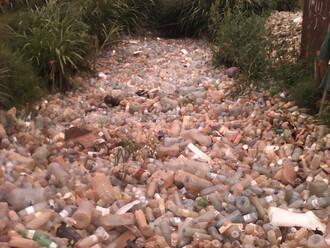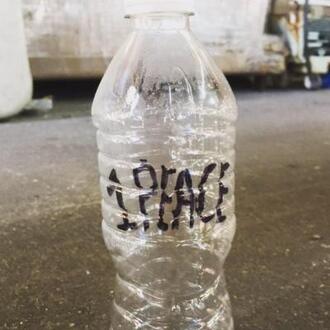-
SOUTH AFRICA: Cease Unsustainable Property Development in Cape TownThis is necessary as the Western Cape cannot support any more people with the natural resources available (especially water), and encouraging housing development on undeveloped land will only lead to problems in the future. The City Of Cape Town should cease approving unsustainable property development in the Western Cape, and instead focus on protecting the natural environment and improving the lives of the citizens that already inhabit these areas - not the citizens that don't. Everyone is affected; the harm to the environment will only add further to climate change and the endangerment of native animals species. An example of this in Cape Town is the leopard toad, whose population has nearly gone extinct due to over development and the destruction of its natural habitat. With more unsustainable development, the populations of wild cats, snakes, buck, various insects, birds and plant life will decrease, and we may lose these creatures permanently if we are not careful. Secondly, additional housing is being created to attract more people outside of the Western Cape, which is experiencing drought, will result in even greater strain on water supplies and cause even greater hardship for the original inhabitants of the Western Cape. The use of water and resources in building these properties detracts from our already limited supplies. This is also a significant waste of funds that could have been dedicated to improving infrastructure that already exists within the region, such as education, the electricity grid, roads and emergency services. Furthermore, the investment being dedicated to these housing developments could have gone towards desalination tanks and other schemes to protect our steadily decreasing water supply. Thirdly, there is an even greater human element in this. The housing developments being green-lit are in relation to upper middle- and upper-class housing, rather than catering for poor households. This could be seen as a far reaching issue for housing developments near lower class towns or settlements, as a process of gentrification could occur that may lead to the displacement or replacement of these neighbourhoods due to higher rent or further demand for land to cater for High Income Households. In the most extreme cases, parts of these neighbourhoods may be bought out to create more high class estates. Examples of this can be seen throughout history, with gentrification occurring in New York. This may not happen, depending on the circumstances, but the recent development of the Cape Capri Estates opposite Masiphumelele does lead to a very stark parallel between this and gentrification in the USA and other countries. Finally, the Economic consequences of this cannot be understated as well. Property development on Farmland and bio-diverse ecosystems destroys potential opportunities to create long term jobs for the residents of the Western Cape, and could potentially lead to a reduction in Tourist revenue in the long run should the natural habitat be eroded. Property Development is not a sustainable form of income generation as it relies on the availability of a fixed resource, LAND, and within the context of South Africa is only being developed to be utilised by foreigners and upper income households. Alternately, investment in the Tourist sector would generate both long term jobs as well as a much stabler revenue inflow. Tourism allows for both economic growth and development within an economy, and in South Africa - where potential economic growth far outweighs actual economic growth - Tourism is essentially one of the few viably sustainable means of income generation. We cannot accept further unsustainable development. Property development does generate jobs and income for people, but jobs can also be generated from shifting that investment towards improving existing infrastructure, as well as conservationism which in turn offers more sustainable jobs that do not end once development is finished.477 of 500 SignaturesCreated by Olivia Crowther
-
SOUTH AFRICA: NO to the Duynefontein Nuclear PlantThe approval for a 4,000-megawatt facility at Duynefontein, adjacent to the Koeberg Nuclear Power Station, comes at a time when South Africa can neither afford, nor does it need a new nuclear power station. The South African fiscus cannot afford any new nuclear build, the Finance Minister said so on 25 October 2016. If we invest in nuclear, we'll have less money for water and education - needed in the province and the rest of the country. Nuclear is not the cheap, safe and affordable option it is often presented as. Instead it is costly, dangerous and nuclear accidents are devastating: https://en.wikipedia.org/wiki/Nuclear_and_radiation_accidents_and_incidents With high unemployment rate in SA, we should be investing in renewable energy as it will be available much quicker than nuclear and it creates more jobs - and is far less dangerous. Nuclear creates fewer jobs than renewable energy generation. In terms of the nuclear jobs potential in SA, the Russian state-owned nuclear company Rosatom stated in mid-2013 that 15,000 new jobs would be created directly by the procurement. However, in March of this year, that number dropped significantly, to only 5,760. The whole Nuclear Deal is shrouded in secrecy. What is worse is that as usual the SA government continues to make key energy decisions in secret -- which will have a negative impact on current and future generations in South Africa -- and without any input from the people. Please sign - to Say NO to The New Nuclear Power Plant plans and urge the government to invest in sustainable renewable energy.1,701 of 2,000 SignaturesCreated by Laswet Savadye
-
Stop the mass murder of aquatic lifeThe ocean is filled with beautiful animals that have as much right to life as you and I, yet people are killing them to the extent that certain breeds of fish are now endangered. I realize that fish is a food source, but this is going to far. Also, what is the point of killing dolphins? Japanese "Drive hunts" kill 20000 dolphins every year, and for what? Who eats dolphins? They are beautiful mammals that need to be preserved. In addition, if fish become extinct, they won't be there for people to eat in the future.80 of 100 SignaturesCreated by Amy Chaplin
-
CAMEROON: Pour un environnement sain, je participe au recyclage des bouteilles plastiquesSelon certains experts 05 des 14 tonnes de déchets non biodégradables au Cameroun sont des bouteilles vides en plastique. La décomposition des bouteilles plastiques peut prendre jusqu'à 600 ans.Si ces bouteilles ne sont pas recyclées, elles finissent dans des rigoles, des ruisseaux, des fleuves,.... Elles bouchent des caniveaux, polluent l'eau , tuent la faune et la flore, et créent de grandes inondations.Elles contribuent ainsi à la pollution de l'environnement, la prolifération du paludisme, l'insalubrité et les pertes humaines/matérielles dans nos cités. Certaines entreprises et ONG/associations ont engagées des actions périodiques de récupération des bouteilles dans des décharges publiques.Cependant un travail en amont est essentiel pour la récupération des bouteilles plastiques dans les ménages et qu'elles ne se retrouvent plus dans les déchets et ordures ménagères .Pour cette raison, l'Association Building Africa lance cette campagne afin d'avoir une politique nationale de récupération et recyclage des bouteilles en plastiques au Cameroun impliquant tous les acteurs de la société.35 of 100 SignaturesCreated by Association Building Africa
-
EAST AFRICA: Against gas and oil degradation in the Lake TanganyikaThey are dependent on fishing for their livelihood. Furthermore, the lake is home to a very large variety of fish. The danger is simply too great for these species to become extinct by the degradation of raw materials. I urge those responsible to deal with this issue before making premature decisions and destroying life at and in the lake.139 of 200 SignaturesCreated by Kai Brunner
-
SOUTH AFRICA: STOP Mining Companies from killing the West Coast's unique biosphereThe West Coast has a unique and ecologically critical ecosystem and the following is under immediate threat if the mining company EEM is not stopped immediately in the Supreme Court. The Langebaan Lagoon (which is a RAMSAR site and a marine protected area) is an 'aquifer dependant lagoon' and the Elandsfontein aquifer which feeds the Lagoon has been described by experts as 'highly vulnerable and susceptible to anthropogenic pollutants and disturbance' and 'potentially extremely environmentally sensitive' due to its intergranular sandy structure. The Department of Water Affairs have outlined in their research that: • the Langebaan Road aquifer and the Elandsfontein aquifer are connected with one another as different influences have the same impact on the monitoring holes of both aquifers, • water flows from the Elandsfontein aquifer to the Langebaan Lagoon through Geelbek, • water also flows from Elandsfontein to the Langebaan Road aquifer, • if the aquifer should be dried up for whatever reason, the sand formations, will lose its capability to store water permanently, • if pollution of any nature should occur the Langebaan Road aquifer, Elandsfontein aquifer and the Langebaan Lagoon will be affected. EEM is proposing to mine within: • a 10-million-year old aquifer, which is a critical groundwater source within a 30 km radius, • a Core 1 area of a UNESCO Biosphere, • an internationally significant heritage area, described as an “Origin of Man” site, • a Critical Biodiversity Area, • a Buffer zone of the West Coast National Park and • a climate adaptive corridor, • an area that is signed into an international Convention on Biological Diversity treaty (South Africa is a signed partner) as part of the Park Expansion Plan Program, • a priority climate change adaptation corridor where they will be mining on endangered vegetation with 16 Red Data species, • a most vulnerable municipality with regards to climate change, • a planned protected area, • a groundwater catchment area, and • an inter-regional biodiversity corridor.261 of 300 SignaturesCreated by Elsa Wessels
-
SOUTH AFRICA: Don't Use Hydraulic Fracturing near Harrismith/Verkykerskop/Van Reenen/Bergville AreaWe are concerned about the wastage of water used for the Fracking process and the possible impact on our groundwater.246 of 300 SignaturesCreated by Marius Swart
-
Non à l'attribution de nouvelles concessions mettant en péril la forêt de la RD Congo.La sauvegarde mieux la conservation de la forêt de la République Démocratique du Congo ce pays qui, en lui seul possède environ 60% des forêts couvrant une superficie estimée à 145 millions d’hectares, environ 67% du territoire national et qui est le deuxième poumon mondial en terme de superficie forestière après l'Amazone au Brésil, doit devenir une préoccupation qui requière l'implication de toute l'Afrique et pourquoi pas du monde entier. D’après les différentes estimations faites, il y a quelques années avant, il a été remarqué que, environ 25% des 75% des forêts les plus importantes pour la conservation des espèces d’oiseaux menacées se situent dans la seule Afrique centrale , et en Afrique, la RD Congo vient en tête avec ses écosystèmes les plus riches avec 11.000 espèces végétales identifiées dont 1/3 serait endémique . Donc , l’intérêt de protéger cette forêt qui est une véritable réserve de biodiversité biologique et qui garantie pour la survie de notre planète ne doit pas être négocié partant du rôle combien important qu'elle joue dans la nature( dégagement de l'oxygène qui est très important pour la survie de toutes les espèces tant humaines , animales que végétales). En même temps, la forêt adsorbe le gaz carbonique et équilibre le climat sur toute la surface de notre continent en nous épargnant ainsi des drames tels que: le réchauffement climatique, les perturbations des saisons, les inondations ou tsunamis etc... En outre, la forêt est un excellent milieu de vie et ce, depuis des temps anciens des certaines populations locales mais aussi des animaux et oiseaux. Alors, laisser un certain groupe de personnes contribuer à la dégradation et à la déforestation des écosystèmes forestiers de la RD Congo c'est porter atteinte au droit à l'environnement des hommes mais aussi de la faune dont certaines espèces rares ne font que disparaître par le fait du braconnage favorisé par l'exploitation illégale et illicite de la forêt. Que donc, tout le peuple congolais, africain et du monde entier s'élèvent pour dire non à cette entreprise illicite de destruction de la forêt de la RD Congo et ce, avant que cela ne puisse coûter cher à notre vie et survie et ainsi compromettre l'avenir de notre existence.71 of 100 SignaturesCreated by Patrick Mavinga

-
MPA NEEDED FOR PROTEA BANKS, SOUTHAFRICATo put Protea Banks under a MPD is necessary because our sharks need to be protected and they can only survive through networks of global marine protected areas. Sharks are not only vital for the survival of our oceans but they also have become highly important assets for eco tourism. If the sharks die, the ocen dies too !!!79 of 100 SignaturesCreated by Andreas Wilkens
-
NON A L'EXPLOITATION ILLICITE DE BOISPar ce que ils exploitent sans tenir compte des méthodes d'exploitation durable. ils ne reboisent pas, ils coupent les espèces sans tenir compte de leur valeur écologique, économique, culturelle, sociale et ou alimentaire. ils échappent aux impôts et la population locale ne trouve pas profit de cette exploitation, ça crée également des conflits32 of 100 SignaturesCreated by MOMBOLO CHRISTIAN
-
non a la proliferation des bouteilles plastiques dans les grandes villes du camerounce sujet est très important parce que les camerounais consommateurs de ces produits et les entreprises camerounaise qui produisent ces bouteilles n'ont pas encore eu un appercu de l'ampleur de ce phénomène. vous n'avez qu'a faire un tour dans les bas fond de la ville de Yaoundé pour voir des monticules de milliers de bouteilles qui enlaidissent le paysage.j'aimerais inculquer a mes frères camerounais la notion de recyclage qui est important dans une société qui se dit émmergéante en 2035 car recycler ces bouteilles plastiques peu aider a produire d'autres objet . ces bouteilles peuvent servir de matières premières a d'autres industries pensons -y.85 of 100 SignaturesCreated by mangwa alain christian
-
BAN NON BIODEGRADABLE PLASTICSIt is necessary that towards the Sustainable Development goals, we focus on sustaining our environment. Proper waste management is key in curbing pollution and ensuring sustainable environments for urban and rural development. Plastic bags and plastic products have become a menace in Kenya with cities like Nairobi experiencing floods due to blocked drainage by plastics. The pollution from burning of these products have further increased the effects of greenhouse gases. Banning use of non bio-degradable plastics is a necesaary step towards environmental sustainability.187 of 200 SignaturesCreated by Oduor Atieno


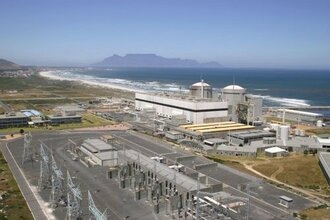
.jpg)
.JPG)
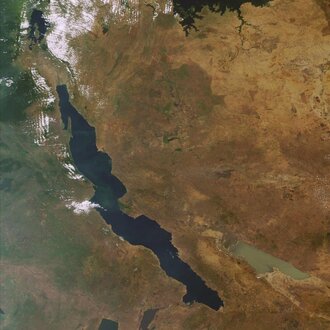
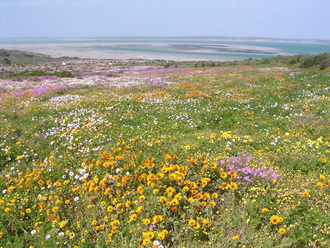
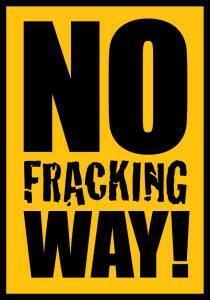
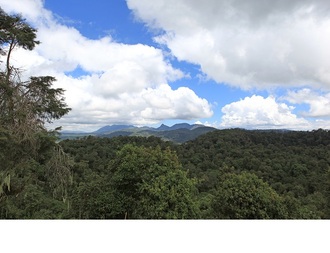
.JPG)

